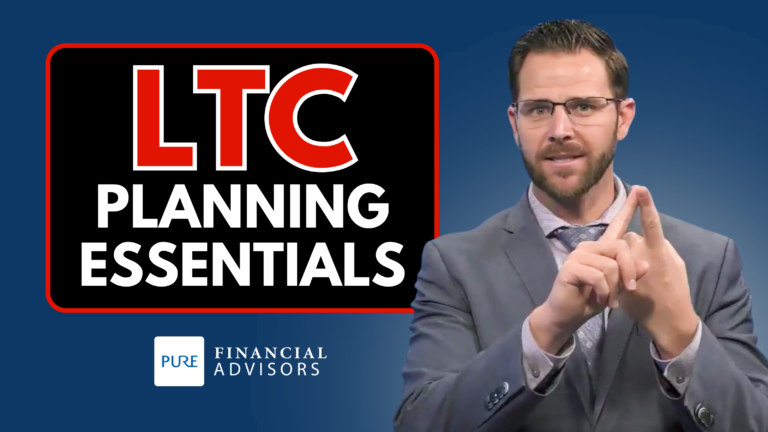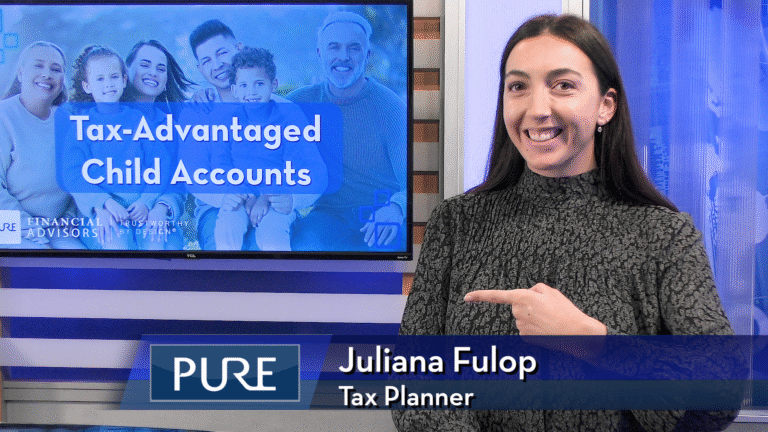Whether you manage your own portfolio or use the services of an investment advisor, there are costs associated with your investments, some of which are tax-deductible and some of which are not. Karen Baszak, CFP® explains this in more detail. You can find your fees that are eligible for deduction listed on schedule A of your tax return on line 23.
Transcription:
“Hi, I’m Karen Baszak, CERTIFIED FINANCIAL PLANNER™ with Pure Financial Advisors, and this is the Question of the Week. This week’s question is: Which investment-related fees are tax- deductible? There’s a lot of confusion on this issue. Whether you manage your own portfolio or use the services of an investment advisor, there are costs associated with your investments, some of which are tax-deductible and some which are not.
Let’s start by taking a look at some of the common fees that are not deductible. The first is trading fees and commissions. While these aren’t deductible for tax purposes, they will add to your cost basis, so if it’s related to an investment held outside of a retirement account, you’ll at least get some tax benefit for this when you sell the security. Internal fund expenses are another example of a non-deductible cost. These are the administrative costs that mutual funds and exchange-traded funds charge, and they typically range from a quarter of a percent to half a percent annually, none of which are tax-deductible. Lastly, you cannot deduct advisory fees paid directly from retirement accounts. You could deduct these fees if you paid them out of pocket rather than directly through the account, but if they come out of the account, they come out as a tax-free and a penalty-free distribution, and depending on your tax situation, this could actually offer you a greater benefit in the tax deductibility.
Next, let’s review some of the common fees that are tax-deductible. Financial planning fees are eligible for deduction, and if you own a rental property or small business, often these fees can be deducted as the rental property expense or a business expense. You can also deduct estate planning fees. If you have legal costs for either setting up a trust or amending an existing trust, these are also eligible for deduction. Safe deposit box fees are another eligible deduction. While you can’t deduct advisory fees paid directly from retirement accounts, you can deduct advisory fees paid from non-retirement accounts, such as accounts titled under your trust or held jointly. Lastly, you can deduct the cost of subscriptions for financial publications, as long as you are using them to help make financial decisions.
The other important thing you need to know is that fees that are eligible for deduction are listed on schedule A of your tax return on line 23, the total of items from line 21 to 23 of schedule A are only deductible to the extent that they exceed 2% of your adjusted gross income (AGI). So, the higher your income, the less likely it is that you will be able to deduct these costs. Still, it’s worth taking a look at what might be deductible, otherwise you could miss out on a viable tax break. I’m Karen Baszak, and that was your Question of the Week.”
As with any tax matter, you should always consult a qualified tax professional for guidance.












